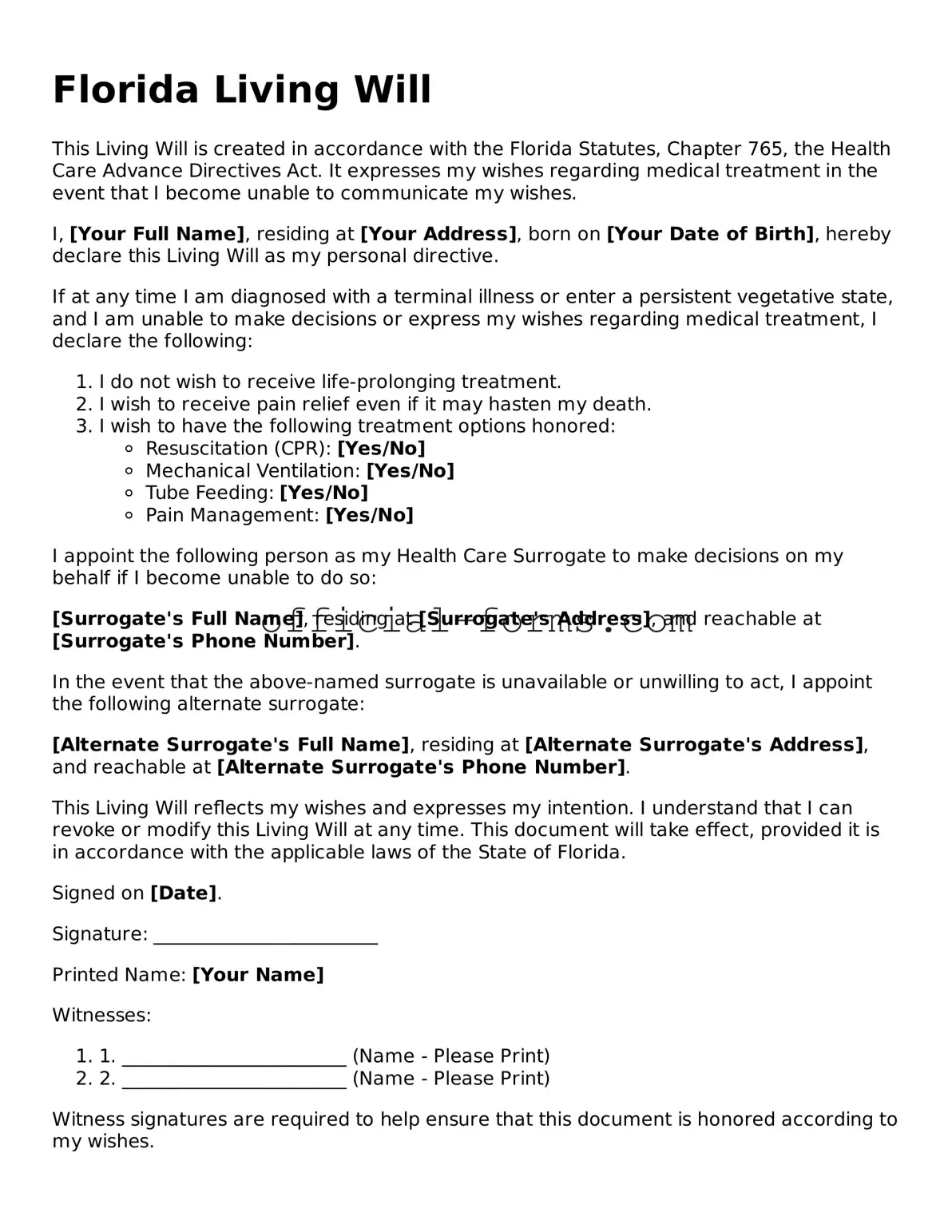Official Florida Living Will Document
A Florida Living Will is a legal document that outlines your wishes regarding medical treatment in the event you become unable to communicate your preferences. This form allows you to express your desires about life-sustaining procedures, ensuring that your healthcare aligns with your values. By completing a Living Will, you empower your loved ones to make informed decisions on your behalf during challenging times.
Open My Living Will Now

Official Florida Living Will Document
Open My Living Will Now
Don’t leave your form incomplete
Finish Living Will online quickly from start to download.
Open My Living Will Now
or
➤ PDF
